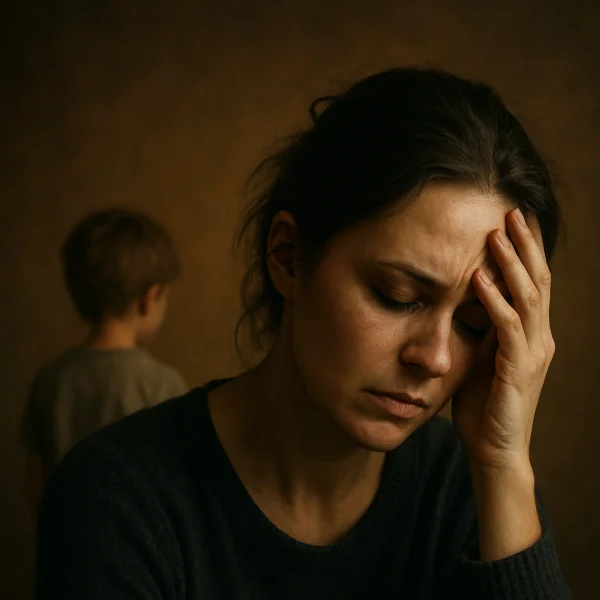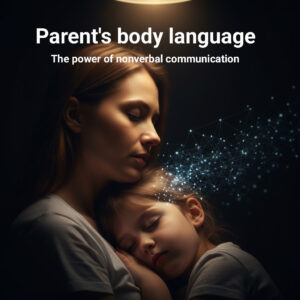Parenting today is more challenging than ever. High expectations, limited support, economic pressures, and fast-paced lifestyles leave many parents — including loving, conscious, and responsible ones — feeling overwhelmed.
At some point, many parents find themselves saying:
“I can’t keep going like this.”
“I’m exhausted… deeply exhausted.”
This is more than ordinary tiredness.
This is Parental Burnout — a psychological condition recognized and studied extensively in the last decade. It was first defined scientifically by Moïra Mikolajczak, Isabelle Roskam, and colleagues in their groundbreaking research (Mikolajczak & Roskam, 2018).
This article is your complete, authoritative, evidence-based guide to parental burnout, covering:
-
What parental burnout is
-
Its symptoms and warning signs
-
Levels and stages of burnout
-
Consequences for parents, children, and families
-
Comparison between burned-out and healthy parenting
-
Prevention strategies
-
Treatment and recovery
-
A validated assessment tool for measuring your burnout level
Use this guide as a reliable reference — whether you are a parent, educator, clinician, or researcher.
۱. What Is Parental Burnout?
Parental burnout is a mental and emotional health condition caused by chronic, intense, and unrelenting parental stress, and it has three core symptoms:
۱) Emotional Exhaustion
A deep and persistent fatigue that does not improve with sleep or short breaks.
۲) Emotional Distancing from the Child
Parents continue caring for their child’s needs, but with reduced warmth and emotional presence.
۳) Loss of Parental Fulfillment
A painful contrast between the parent they used to be (or wanted to be) and the parent they have become.
These characteristics are outlined in the authoritative book:
Parental Burnout: What It Is, and What You Can Do to Prevent It — Roskam & Mikolajczak, 2020
۲. Symptoms and Warning Signs of Parental Burnout
Based on multiple international studies, including IIPBF (International Investigation of Parental Burnout), symptoms fall into four categories:
A) Emotional Symptoms
-
Feeling empty
-
Frequent crying
-
Irritability or emotional numbness
-
Loss of joy in parenting
-
Feeling trapped in the parental role
B) Cognitive Symptoms
-
Decreased concentration
-
Decision-making difficulties
-
Forgetfulness
-
Mental fog
-
Reduced ability to plan or organize
C) Behavioral Symptoms
-
Explosive reactions or shouting
-
Avoiding interactions with the child
-
Spending excessive time on screens to escape
-
Withdrawal from family activities
D) Physical Symptoms
-
Insomnia or oversleeping
-
Chronic fatigue
-
Headaches
-
Muscle tension
-
Weakened immune system
Scientific finding:
A large study across 42 countries showed ۵–۸% of parents experience severe parental burnout (Roskam et al., 2021).
۳. Stages and Levels of Parental Burnout
Parental burnout progresses through four main levels:
Level 1: Mild Parental Fatigue
Short-term tiredness that improves with rest.
Level 2: Moderate Parental Stress
Consistent stress but preserved emotional connection with the child.
Level 3: Parental Burnout (Severe)
Persistent exhaustion, emotional distancing, and self-doubt.
Level 4: Clinical-Level Parental Burnout (Critical)
Includes:
-
Risk of depression
-
Anger outbursts
-
Emotional withdrawal
-
In rare cases, thoughts of escape or leaving responsibilities
۴. Consequences and Impacts of Parental Burnout
Research by Mikolajczak & Roskam (2018, 2020) consistently shows that parental burnout significantly increases the risk of:
۱. Harsh or Aggressive Parenting
Lower frustration tolerance increases the likelihood of yelling, snapping, or punitive behavior.
۲. Parental Disengagement
Reduced communication, reduced warmth, and fewer shared activities.
۳. Guilt, Shame, and Self-Blame
These emotions worsen burnout and cause a destructive cycle.
۴. Higher Risk of Depression and Anxiety
Around ۶۰% of burned-out parents also meet criteria for mood disorders.
۵. Marital and Relationship Conflicts
Stress spills over into the couple’s relationship.
۶. Negative Effects on Children’s Emotional Development
Children of burned-out parents show more:
-
Emotional dysregulation
-
Oppositional behavior
-
Stress symptoms
-
Lower quality attachment
(Parental Burnout and Child Outcomes Study, 2022)
۵. Life With and Without Parental Burnout — A Clear Comparison
| Category | Parent With Burnout | Healthy Parent |
|---|---|---|
| Energy | Constant exhaustion | Manageable energy levels |
| Interaction with Child | Minimal, distant | Warm, responsive |
| Joy in Parenting | Nearly absent | Frequent moments of joy |
| Reactions | Irritable, reactive | Patient, flexible |
| Self-Image | Feels inadequate | Feels competent |
| Quality of Life | Overwhelmed | Balanced, meaningful |
۶. Evidence-Based Strategies to Prevent Parental Burnout
Recommended directly from the Mikolajczak & Roskam Prevention Model (2020):
۱. Reduce the Burden of Parental Roles
-
Share responsibilities with a partner
-
Delegate household tasks
-
Release unrealistic expectations
Research shows:
Parents who delegate at least 20% of tasks reduce their burnout risk by up to 30%.
۲. Strengthen Self-Care
-
Regular sleep
-
Daily rest moments
-
Light exercise
-
Nutritious meals
Self-care is not selfish — it is essential.
۳. Adjust Unrealistic Expectations
Let go of the ideal of the “perfect parent.”
Adopt Winnicott’s concept of the “Good Enough Parent.”
۴. Build a Support Network
Friends, family, parenting groups, communities.
Social support is the strongest protective factor in all studies.
۵. Develop Stress-Management Skills
-
Deep breathing
-
Mindfulness
-
Cognitive reframing
-
The STOP technique
-
Emotional regulation training
۶. Structured Routines Instead of Reactive Living
Predictability reduces mental load and decision fatigue.
۷. Evidence-Based Treatment of Parental Burnout
A combination of validated therapies includes:
۱. Cognitive Behavioral Therapy (CBT)
To challenge beliefs such as:
-
“I must always be perfect.”
-
“I’m a terrible parent.”
CBT reduces both guilt and emotional exhaustion.
۲. Emotional-Focused Interventions
-
Guilt management
-
Anger regulation
-
Self-compassion training
۳. Family Structure Adjustment
-
Improved routines
-
Better sleep schedules
-
Clearer task distribution
-
More realistic family expectations
۴. Rebuilding Parental Pleasure
Small, meaningful moments with the child:
-
۵-minute special play
-
Walks
-
Shared rituals
-
Eye contact moments
These reawaken the emotional bond.
۸. Assess Your Level of Parental Burnout
To help parents understand their condition clearly, the Valian Parenting Ecosystem provides a professional assessment process.
We invite you to complete the Parental Burnout Assessment Questionnaire.
After submitting the form:
✅ A certified expert will provide:
-
A detailed video explanation of your results
-
A personalized infographic
-
Clear guidance on what your level means
-
Recommended steps tailored to your situation
This assessment helps you understand where you truly stand — whether you are experiencing normal stress, moderate burnout risk, or severe burnout requiring support.
Final Words
Parental burnout is real, widespread, and deeply painful — but it is completely treatable with awareness, support, and proper strategies.
You deserve a life where parenting feels meaningful, connected, and emotionally fulfilling — not a constant struggle for survival.
If you are unsure about your current level of burnout, we strongly recommend completing the Parental Burnout Assessment.
Your well-being is the foundation of your child’s well-being.
And you do not have to walk this journey alone.







